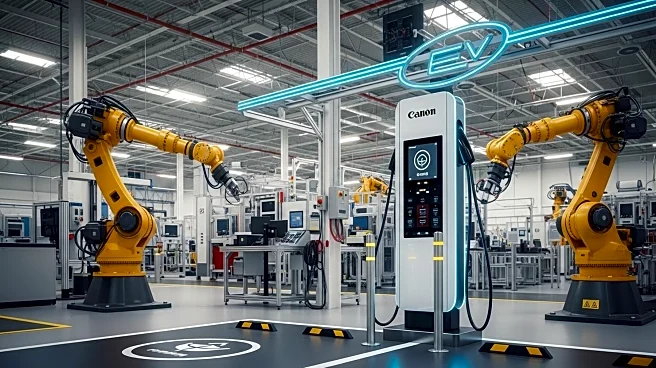What's Happening?
The debate over allowing Chinese electric vehicle (EV) manufacturers to establish production facilities in the United States is intensifying. Concerns are raised about the impact of Chinese mercantilist practices, including subsidies and forced technology transfer, on U.S. competitiveness. The Trump administration's stance on expanding U.S. manufacturing investment is juxtaposed with the potential risks of permitting Chinese EV makers to circumvent tariffs and dominate the U.S. market.
Why It's Important?
The U.S. automotive industry is vital for economic competitiveness, supporting millions of jobs and significant R&D investment. Allowing Chinese EV manufacturers to produce in the U.S. could undermine domestic industry, given China's aggressive mercantilist strategies. The debate highlights the need for a comprehensive national auto sector competitiveness strategy to bolster U.S. manufacturing and protect against unfair trade practices.
What's Next?
Policymakers must consider the long-term implications of allowing Chinese EV makers into the U.S. market. The focus should be on strengthening domestic manufacturing capabilities and ensuring fair competition. The administration may need to articulate a clear strategy to address the competitive threat posed by Chinese EVs and safeguard U.S. industry interests.
Beyond the Headlines
The ethical and strategic dimensions of this debate include the need for transparent trade practices and protection of intellectual property. The potential entry of Chinese EV makers into the U.S. market raises questions about national security and economic sovereignty. The long-term impact on U.S. manufacturing and innovation must be carefully evaluated.









